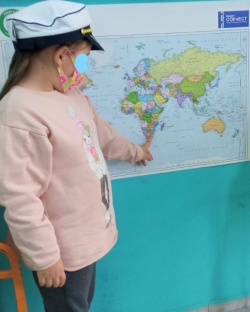Nikos, who is GAC’s Senior Marketing Manager based in Piraeus, reports on the labour shortage impacting the maritime sector and how Greece is uniquely fighting back.

“BIMCO’S new Seafarer Workforce Report and the International Chamber of Shipping warn that the shipping industry must significantly increase training and recruitment levels if it is to avoid a serious shortage of officers by 2026. Based on the growing demand for certified officers, the Report predicts the need for an additional 89,510 officers by 2026. Further, the report estimates that 1.89 million seafarers currently serve the world merchant fleet, operating over 74,000 vessels around the globe. The current supply-demand situation indicates a shortage of approximately 16,500 officers.
Research studies
Along with demographic and ageing issues in developed countries, there are other factors that contribute to the steady decline in people looking for seafaring jobs. Research studies have shown that the average population - especially those who live away from coastal areas - has little or no knowledge about the maritime world and the working opportunities it might offer.
Recent research by the UK Government’s Department of Transport on perceptions young adults and adolescents have of the maritime industry has helped to define the problem:
The studies noted specific deterrents to seafaring careers including:
Greece stands as a template for most developed maritime nations confronting seafarer decline. There were some 150,000 Greeks working at sea 30 years ago. There are less than 25,000 today. The Hellenic Ministry of Merchant Marine and other groups in the Greek Shipping Cluster have been making efforts to create awareness and promote the benefits of a shipping career both at sea and ashore. Advertisements depict a more diversified image of shipping jobs to attract the younger generation.
Ship owners too are trying to make life at sea more attractive by improving living conditions. Mental wellness programs and internet connectivity are now part of the onboarding mix.
Engaging Gen-next
Along with contributing my children to the maritime sector, I have spent the past several years mentoring university students and giving spare-time lectures on maritime matters.
Before Covid restrictions hit, I was also taking students to visit container vessels loading and discharging at the port of Piraeus.
Private Initiatives
Then there is “Project Connect” – a non-profit organisation which aims to enhance opportunities for youth by offering internships and placements in ship operations departments and onboard vessels. One of its initiatives is “Adopt-a-Ship”, a project-based educational program that aims to build awareness and empathy about seafarers’ lives at sea and influence young people to seek careers in Shipping. The programme is endorsed by the International Maritime Organisation.
Adopt-a-Ship is a real-world learning experience with Captains, Officers and Crew as role models. Once a ship is assigned to a school classroom (Elementary or Junior High), there is direct email communication with the vessel and the learning begins about daily duties, cargoes, trading patterns, routes, loading and unloading at ports and so on. Statistics taken from questionnaires show an amazing difference from year start to year end in understanding about vessel types, maritime routes, cargoes carried and even gender equality matters (98% of students replied that a woman can become a ship Master).
Vessels’ officers and crew are also very happy to contribute to a worthy cause and consider their interaction a pleasant distraction from daily routines!

Artwork from a Greek elementary school participating in the Adopt-A-Ship initiative
Changing jobs
Of course, Shipping is not what it was 30-40 years ago. Technological advances have tilted the playing field while the pandemic has led to high levels of remote working and revised thinking about business models. Also, with vessel designs looking to a future that’s unmanned, remotely operated and decarbonised, there will be a new line of skills needed by those opting for a future maritime career.
Well-funded
Finally, Shipping is reporting bumper profits. Funds are available to build the next generation of vessels – and also to promote the industry to the next generation of people who will take up the seafaring challenge. Whatever happens in coming years, it won’t be boring.”



